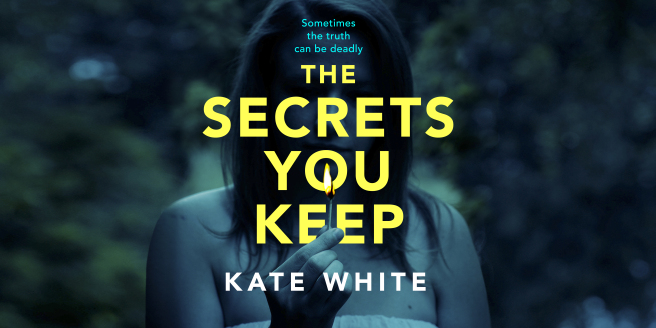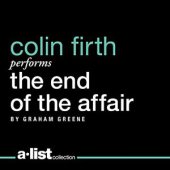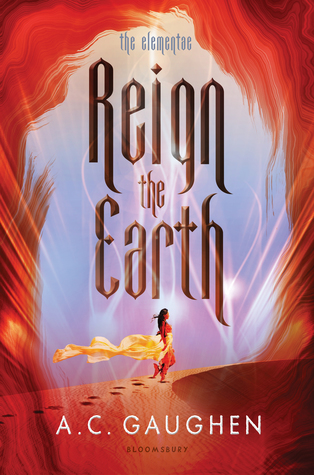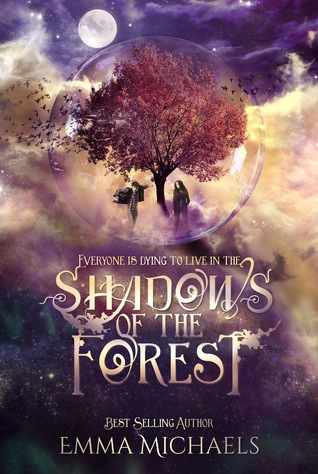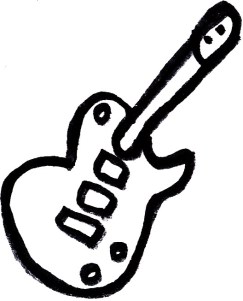
Every month one of us makes the rest of the crew watch a movie they’ve never seen before & we discuss it afterwards. This month Britnee made Brandon & Boomer watch Hearts of Fire (1987).
Britnee: Known as the film that killed critically acclaimed director Richard Marquand (Return of the Jedi, Eye of the Needle, etc.), the 1987 musical drama Hearts of Fire has somehow managed to disappear from the cinematic landscape. It’s so strange for a film with such a well-known director and big name actors (Bob Dylan & Rupert Everett) to not achieve even cult status. I’m not going to beat around the bush here. Hearts of Fire is terrible. It’s so terrible that it went straight to video after spending a very short time in theaters. Until this day, it’s difficult to get a hold of a physical copy because it was never released on DVD, and it doesn’t look like it ever will be. All of this negativity aside, I wholeheartedly love this movie. It’s a lot of stupid fun without trying to be funny, and that’s why I just had to make the Swampflix crew watch it for Movie of the Month. The film stars music legend Bob Dylan as a washed up rock star turned chicken farmer named Billy Parker. Billy develops an uncomfortable romantic friendship with a young musician, Molly McGuire (Fiona). Molly plays small gigs with her band at her hometown bar (somewhere in Pennsylvania) that’s filled with some very interesting characters, including a barmaid who looks like a combination of Large Marge and Dolly Parton. Billy stumbles into the bar and quickly develops an interest in Molly. He sort of becomes her mentor, but it’s also obvious that he wants to get in her pants super bad. It’s so hard to watch middle-aged Bob Dylan flirt with a teenager, and it gets even worse when she flirtatiously calls him names like “Dirty Old Man.” Billy is performing in London, and he takes Molly along for the ride. Almost immediately after landing in London, Molly runs into her all-time-favorite singer, James Colt (Rupert Everett), the hottest name in modern music. It doesn’t take long for Molly to be caught in a love triangle between these two men while also striving to achieve her dream of being a superstar. The chemistry between the three main characters is perfect. Dylan moves like a zombie and mumbles truckloads of nonsense, Fiona is a bubbly teen with a great raspy singing voice (Bonnie Tyler meets Laura Branigan), and Everett is the stereotypical 80s pop star. When the three interact with each other, it’s pure entertainment.
The character Billy Parker was initially written for Mick Jagger, but he turned down the role because, well, the script was crap. I’m so thankful he did because Dylan is hilarious in this movie without even trying. He literally mumbles all of his lines and pretty much sleepwalks throughout the entire movie. Dylan was obviously not very excited about starring in Hearts of Fire, and it shows through his acting. He must’ve been very desperate for cash at that point in his life.
Brandon, what are your thoughts on Dylan’s acting in Hearts of Fire? Was he attempting to portray a tired, old rock star or was he actually a tired, old rock star? How different would this movie be if Mick Jagger had taken the role of Billy?
Brandon: The originally intended, Mick Jagger version of Hearts of Fire at least makes more sense. Billy Parker is a hard-drinking, fast-loving rock n’ roller, a lifestyle Jagger had genuinely been living for decades by the time this film was released. I don’t necessarily believe that Jagger’s rock n’ roller energy could have saved the film’s embarrassingly lifeless script (which was co-written by Showgirls/Basic Instinct coke monster Joe Eszterhas, of all people), but he could at least have afforded it some authenticity. As Britnee suggests, part of what makes Hearts of Fire so memorably bizarre is that Bob Dylan is absurdly miscast in the role. First of all, unlike Jagger, Bob Dylan does not fuck. Not that he’s a 76 year old virgin or anything, but he’s more of a music industry legend for his rambling, radical politics poetry than he is for pure sexual charisma. Second of all, 1980s Bob Dylan especially does not fuck. Fresh off a creative slump where the singer-songwriter churned out several little-loved gospel records as a Born Again Christian, Dylan was as soft & as unsexy as ever. That’s why it’s so weird to see him don the leather-clad costuming of a rock n’ roll toughie; nothing in his past as an indignant hippie folk singer or a mediocre gospel enthusiast suggests he had earned the right (give of take a recording or two with The Band). The conceit of the film requires Dylan to be playing himself, but not quite, so that he credibly turns heads when he saunters into rock clubs unannounced. Instead, he’s playing a version of himself that never actually existed. This is made doubly strange by the fact that Dylan has the energy level of a man twice his age. He’s less than 50 years old in Hearts of Fire, but he has the charisma of an ancient geezer, to the point where when he smashes a hotel room in a moment of supposed rock n’ roll excess, all the audience can do is laugh at the labored, slow-motion movements in his old man body. Dylan was tasked with making Hearts of Fire cool. Rather than achieve that impossible task, he turned it into a joke.
As fun as it is to gawk at a past-his-prime Dylan slowly seeping out of his range as a dangerous rock n’ roller romantic lead, I do feel really bad for Fiona here. I have to assume Hearts of Fire was even more damaging for her career as a VH1, Pat Benatar-era rock n’ roll singer than it was for the director’s, if not only because I’ve never heard of her before. She’s actually super charming as the film’s lead, Molly McGuire (except maybe when she’s performing the lifeless radio rock that poisons the soundtrack), which makes it a total shame that she’s asked to act circles around a cardboard cutout of Bob Dylan, a man 20 years her senior. With Mick Jagger in the opposite role, there might have been more of a chance for an erotic spark between Molly & Parker to earn film’s baffling R rating, despite Jagger being roughly the same age as Dylan. Instead, we watch an old man leer at Fiona through drooped eyelids between nonsensical, patronizing mumblings about the dangers of the music biz. Her younger, more viable option for a romantic partner is a synthpop twit played by Rupert Everett, who’s essentially laying out a roadmap for Russell Brand’s career as a public nuisance two decades later. He’s no better than Dylan’s old fart, has-been rocker, really, and the men in Molly’s gradually appear to be two versions of the same asshole on different ends of a shared career trajectory. Their patronizing treatment of Molly as a muse & a protégé instead of a professional equal is exemplified even by their respective choices for a “first date” location: an ice cream parlor and a carnival. They treat her like a little kid (just one they happen to want to sleep with). What’s extra gross about this dynamic is that the movie leers right along with them. Rock n’ Roll was very much still a Boy’s Club at the time of Hearts of Fire‘s production (maybe even more than ever, thanks to the groupie-exploiting hijinks associated with hair metal) and the film obliges the male gaze’s interest in Fiona’s body just as often as it allows her to play music. The camera drools over her as she skinnydips, sleeps pantsless, and forgoes a bra in her sound booth recording sessions. Fiona not only deserved a better pair of rock scene buffoons to lust after her; she deserved a better movie overall.
Boomer, what did you make of Fiona’s performance and her positioning at the center of this bizarre rock star love triangle? Was the Boy’s Club perspective of the film’s version of rock n’ roll at all offset by details like her ultimate decision to choose neither man as a lover & the one lovemaking scene that focused on Everett’s naked flesh for a change? Or was the movie just as limiting of her potential as the leading man-children who populate it?
Boomer: I thought Fiona was quite charming, actually. For the first 45 minutes of the film I found the scenes that focused solely on her to be the best part: her deprecating interactions with her shitty boss, her short but sweet scene with her roommate, even her objections to joining her bandmates in their new gig (despite her objections that she doesn’t play lounge music being bratty in a Reality Bites way). But every time Dylan was on screen, all of my good will just got sucked right out of me. It wasn’t just his performance (which was, make no mistake, terrible), but also his overall look and demeanor. Young Dylan was a cutie pie, and the elder Dylan now is like a noble statesman in his appearance, but a shudder ran down my spine when Molly asked him to go skinny dipping with her; she’s young and effusive and adorable and he looks like someone took 60s Dylan’s face and turned it into a tanned and cracked handbag. All I could think about was this exchange between Bart and Marge in “A Fish Called Selma”: “Why did they make that one Muppet out of leather?” “That’s not a leather Muppet, that’s [Bob Dylan]!”
Which is not to say that Everett serves as a better love interest. His sex scene with Fiona may have focused more on his flesh than hers, but it is to the film’s detriment, as the scene itself is the least erotic love scene that I’ve born witness to since Argento’s Phantom of the Opera. Everett is not an ugly man (I’d argue that his shower scene in Cemetary Man could make any receptive audience member, wombed or not, pregnant), but he’s never been more unappealing than in this greasy mullet and untweezed unibrow. He only barely manages to be more attractive than Dylan by virtue of the fact that he’s not sporting Dylan’s embarrassing earring, which was as distracting as it was pathetic.
Despite being surrounded by so much poor decision-making in the way of casting, costuming, and everything else, Fiona manages to be likable and ebullient. I did spend a lot of time waiting for the other shoe to drop with regards to her fame, however. In a film like this, when a semi-naive country girl is dropped into the lap of a more experienced performer and explores his world of fame from the inside, you expect there to be a certain kind of turning point. Although Colt is subtly inferred to drink too much, Molly never falls into chemical dependence or is forced to confront the fact that her lover is a rock star with a libido to match and he “needs” more than one woman, nor does she have any real failings. The suicide of one of Colt’s fans is the only real obstacle in her life or career after she leaves Pennsylvania, and she’s really only involved tangentially as a witness. Her decision to take neither of her proposed love interests as her endgame partner suggests a kind of feminism, but ultimately feels more like the screenwriter didn’t expect women to experience fame and all of its accompanying temptations and pitfalls the same way that men do, or even at all.
Britnee, do you think that there was a faded rock star in 1987 who could have played the Billy Parker role without it coming off as creepy and weird? Would it have been a better choice to hire an actor who could sing instead of a singer who could(n’t) act? Who would you have cast instead in the roles of Parker and Colt, and why?
Britnee: The thing about washed up rock stars is that they are usually highly unattractive and just hard to look at in general (Bret Michaels immediately comes to mind), so the idea of any real-life, washed up rock star successfully playing the role of Billy Parker seems close to impossible. Most of the musicians that I immediately thought of were still big names in 1987, but their careers are over and done in this day and age. Honestly, I think that 1987 Iggy Pop would have been the best choice. Bob Seger would come in as a second choice, but he’s got a dad vibe to him that isn’t sexy at all. He’s got a very interesting personality and he definitely knows how to work his sexuality, unlike Dylan. Iggy Pop would probably make the unavoidable creepiness of Parker’s character much easier to stomach, but the idea of casting an actor that can sing in the Billy Parker role makes a lot more sense to me. It’s a film after all, not an album. Take a look at James Colt. Everett’s singing wasn’t amazing, but his acting was pretty good. Come to think of it, having a real-life musician in the role of James Colt would have been a better choice, if a musician had to be in the film. Even if the younger musician sucked at acting, more people would have seen this movie and it wouldn’t have flopped so hard at the box office.
In my fantasy recasting of Hearts of Fire, I’m imagining Chris Sarandon as Billy Parker. I recently watched Fright Night and was reminded of how he really does own the screen. As for James Colt, I would cast my favorite 80s music bad-boy, Billy Idol. He’s just so much fun! He’s got some decent acting skills as far as music videos go, and his charisma is out of control. His personality is so vibrant compared to the blandness that is Everett, and it’s what the role of James Colt desperately needs. This is a guy who is the biggest name on the music scene, so lets give him some flare.
Sometimes when musicians take on acting, it does work in their favor. For instance, David Bowie, Cher, and Barbra Streisand had many successful roles in major films. However, most of the time, it just doesn’t work out.
Brandon, after all of the flops that feature musicians attempting to be actors, why do you think this is still such a prominent occurrence in film? Why don’t they just give it a rest? Is there some sort of method to the madness?
Brandon: I have to assume that most acting turns from musicians are marketing decisions, not artistic ones. When David Byrne directs a weirdo art film like True Stories, it’s obviously coming from a place of artistic passion, but it’s a different story altogether when, say, Vanilla Ice stars in a rap-oriented remake of a Marlon Brando motorcycle picture. Vanilla Ice likely didn’t get into the rap game thinking the best way to purely express himself would be as a leading man in a high-fructose romantic comedy. That decision had to have been made for him through a series of boardroom meetings over marketing data that suggested Cool as Ice would boost his album sales & cultural cachet. I can’t speak for Bowie, Cher, or Streisand’s respective movie industry success stories as either passionate work that happened to pay off or marketing decisions that stuck because of natural talent, but Hearts of Fire is most definitely seeped in the desperate cash grab end of that dichotomy. Fiona’s marketing team was likely invested in catapulting a rising star with a hit motion picture, while Dylan’s own publicity team was attempting to borrow some Mick Jagger edge to forgive the sins of his thoroughly un-cool gospel period that immediately preceded the film. I’m pretty sure that Hearts of Fire proved to be an embarrassment & a failure for both musicians, but it’s especially cringe-worthy for Dylan, whose prematurely senile mumblings in the film did absolutely no favors for his dangerous rock star street cred.
Most marketing decisions are a strike-while-the-iron’s-hot proposition made while a pop star is Having a Moment. To hammer the comparison home, I have to assume that Cool as Ice was greenlit when “Ice Ice Baby” was endlessly looping on the radio. By the time the movie hit theaters, however, Ice’s moment had more or less passed and audiences’ thirst for him had, um, cooled. Hearts of Fire feels similarly late to the table. The late 80s was admittedly a strange, stagnant time for radio rock. Nirvana wouldn’t break through until a few years later (as immortalized in the documentary title 1991: The Year Punk Broke), so most genuinely subversive rock n’ roll movements at the time (punk, sludge, thrash, etc.) were largely invisible to mainstream audiences. Still, even a cheesy hair metal soundtrack would have been more cutting edge than the stubbornly old-fashioned 70s arena rock and post-Benatar VH1 rock Fiona & Dylan were tasked with selling as cool here. Even the Soft Cell & Human League style of new wave pop Everrett’s character is supposedly a sell-out for playing would have been years & years stale by the time Hearts of Fire was released. They might as well have made fun of him for singing disco. Casting Bob Dylan as a dangerous, sexy rock star isn’t the only way Hearts of Fire fails to keep its finger on the pulse of modern rock either. When Fiona & company play “aggressive” rock meant to rile up the British punks pogoing in the London audience, it plays like an unintentional joke. In a real life 1987, those kids would have laughed them off the stage for performing the music their parents listen to.
Boomer, I get the general sense that punk & metal aren’t entirely Your Thing as much as other music genres. From that outside perspective, was Hearts of Fire‘s version of dangerous 80s rock n’ roll as noticably, laughably out of date for you or could you more easily excuse the inauthenticity of the youth culture it was selling?
Boomer: Untrue on the count of the first, but correct with regards to metal. I think you’re probably thinking back to this passage from my Shock ‘Em Dead review, and you’re remembering it correctly: “I’m not here to pass judgement on Metal as a genre—after all, as far as devotees to a particular musical style are concerned, metalheads are some of the most aggressive, fanatical, defensive, and insular, and I’m not looking to get my head bashed in by a guy […] who has willingly and purposefully refused to listen to anything that came out after the demise of Vinnie Vincent Invasion. Metal fandom is a mostly misogynistic miasma of guttural throats, thrashing, and toxic masculinity, devoted to a musical subculture that was most successful during a decade where everyone was coked out of their fucking minds, but it’s also the genre that features some of the most amazing and mindboggling musical feats ever performed on guitar, and that fact is not lost on me.” So, yeah, as with some things that I like, there’s a bit of personal backlash against the devotees rather than the thing itself; I think that this feeling is evident in the way that I’ve written about Christianity in my The Late Great Planet Mirth articles as well. It reminds me of a conversation I had a few months ago with my roommate, who pointed out that he’s always associated Star Trek and the Grateful Dead with each other in his mind, because they’re both works of art that are as famous for their fandoms as they are for the text itself; as much as I would like to enjoy metal, the fandom is simply too toxic for me to enjoy.
My obvious punk days are behind me (it’s hard to show your commitment when you no longer have enough hair to die or ‘hawk), but that doesn’t mean I’m not still a fan of the music or the ethos, although I would be lying if I said that I didn’t find the slow infiltration of nationalism into the punk scene (admittedly not as deep in the bone as it is in some pockets of the metal scene, where it seems to breed like a weed) disturbing and disconcerting. Like, seriously, Nazi punks fuck off.
Overall, I found the film to be laughable in its attempt to be “hard” or “edgy,” although I credit that feeling more to simply being a person and not a punk fan. I mentioned it before, but I found Molly’s insistence that she doesn’t play lounge music to be the complaint of a contemptuous brat. I’m reminded of a story I read about a flautist who had been coddled and fawned over from an early age and reached high school as a prodigious talent but also a confrontational and sententious jerk. His high school band raised money by performing an annual community concert wherein they played various compositions with which the general public was familiar, like the Star Wars hero theme and the score to Harry Potter; he refused to participate because doing so was “beneath” him. He was accepted to Julliard but flunked out within a year because he felt that he knew more than his professors. At the time of the last update that the author of the story (a former high school bandmate) had heard, the flautist was now having to live on Earth with the rest of us, with no prospects in his desired field but still clinging to his delusions of musical godhood and not having learned the humility that usually accompanies such a fall from grace. I look at Molly and consider her age and have to ask, just how many dues could she have possibly paid? How could she possibly be so naive? But then the film sees fit to have a haggard musical genie come along and sweep her away from her podunk town, which makes the film a fantasy of wish fulfillment for every backwater kid who knows three chords and thinks they have a story to tell. With that in mind, I’m not surprised that the narrative is so acutely lacking in self-awareness of how these stories play out in real life that we’re supposed to agree with her and be swept along in her wake, but you hit the nail on the head with the words “laughable” and “inauthentic.”

Boomer: I’ve never seen a film so hell bent on not pulling the trigger on Chekhov’s Gun. When Billy first rolls into town, the handle of a revolver is hanging out of the front of his jacket. I’m pretty certain that we also see the same gun sitting on the counter in his kitchen near the end of the film, but we never see him using it at all. There’s not even a scene where he takes Molly out to the back forty to shoot tin cans off of a fence while he pontificates about some metaphor comparing the cans to men who will try to steal or subvert her talent. Sure, we get to see one of Colt’s (har har the irony) fans use a gun, but it’s not the same one. I kept wondering when Billy’s gun was going to come into play, but it never does. That’s a first draft problem, but this is also a first draft movie, so I don’t know why I’m surprised.
Brandon: For a much more authentic look at a singer-songwriter struggling to establish her own voice in the oppressive Boys’ Club of 1980s rock n’ roll, I highly recommend 1982’s Ladies & Gentlemen, The Fabulous Stains. The feminist messaging is more pointed, the songs are more believably punk, and you get to have a glimpse at a before-she-was-famous Laura Dern. As much as I allowed myself to be charmed by Fiona as a personality, I think Hearts of Fire is really only worth digging up to laugh in Bob Dylan’s face as he bizarrely attempts to pass himself off as a sexy, dangerous rock god & fails miserably. The Fabulous Stains, by contrast, is a genuinely great movie set in a notably similar atmosphere.
Britnee: I’ve recently watched a couple of interviews with Bob Dylan around the time Hearts of Fire was filmed, and he is just as tired in real life as he is in this movie. He should’ve gone on a two-week cruise instead of making a movie to get some of his energy restored. But as sad as it sounds, I love how horrible he was, and I love how horrible this movie is. I wish it had achieved cult status so there could be midnight showings with fans dressed up as James Colt (in oversized suits and greasy mullets).
Upcoming Movies of the Month
December: Boomer presents Wings of Fame (1990)
January: The Top Films of 2017
-The Swampflix Crew
Advertisements Share this: